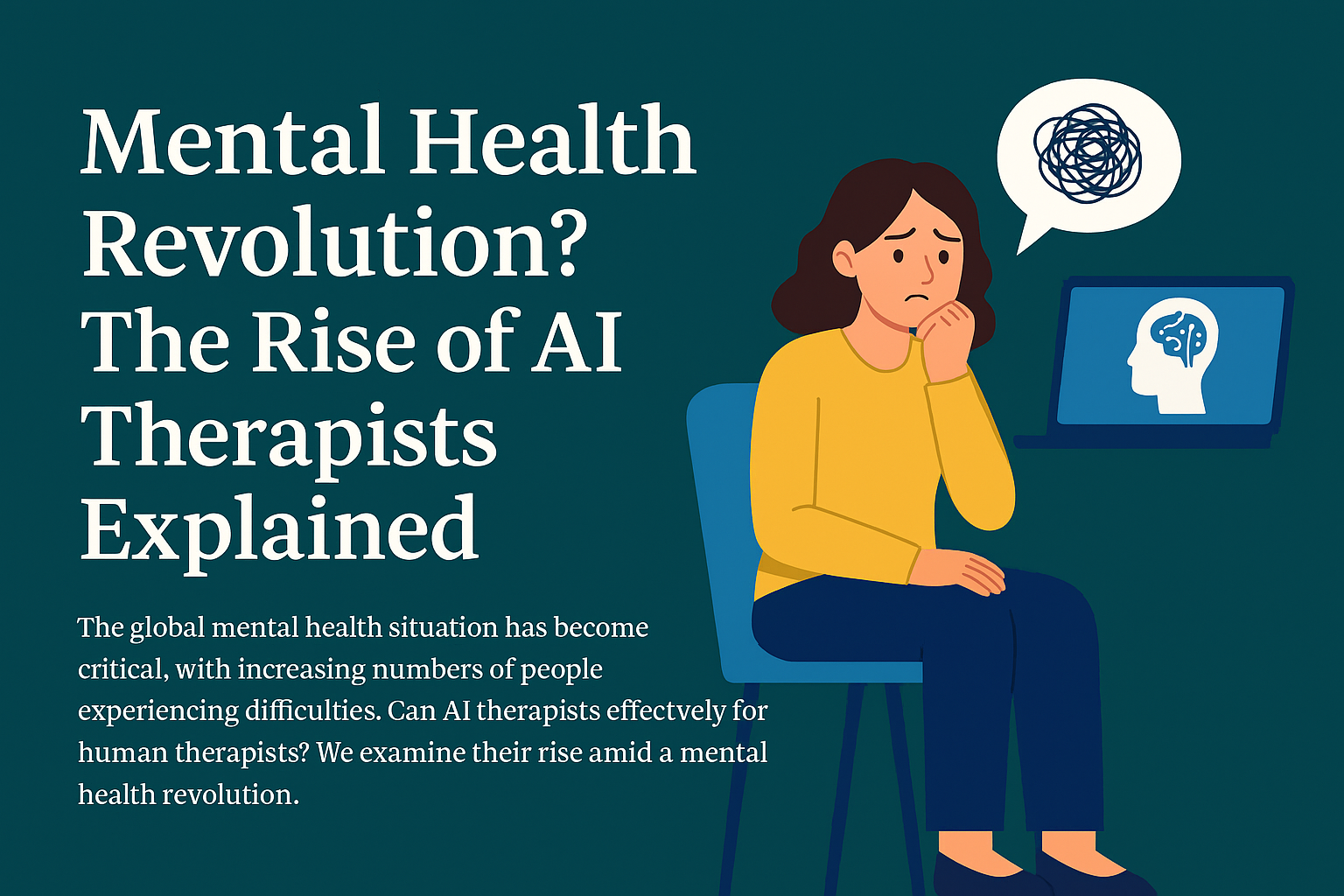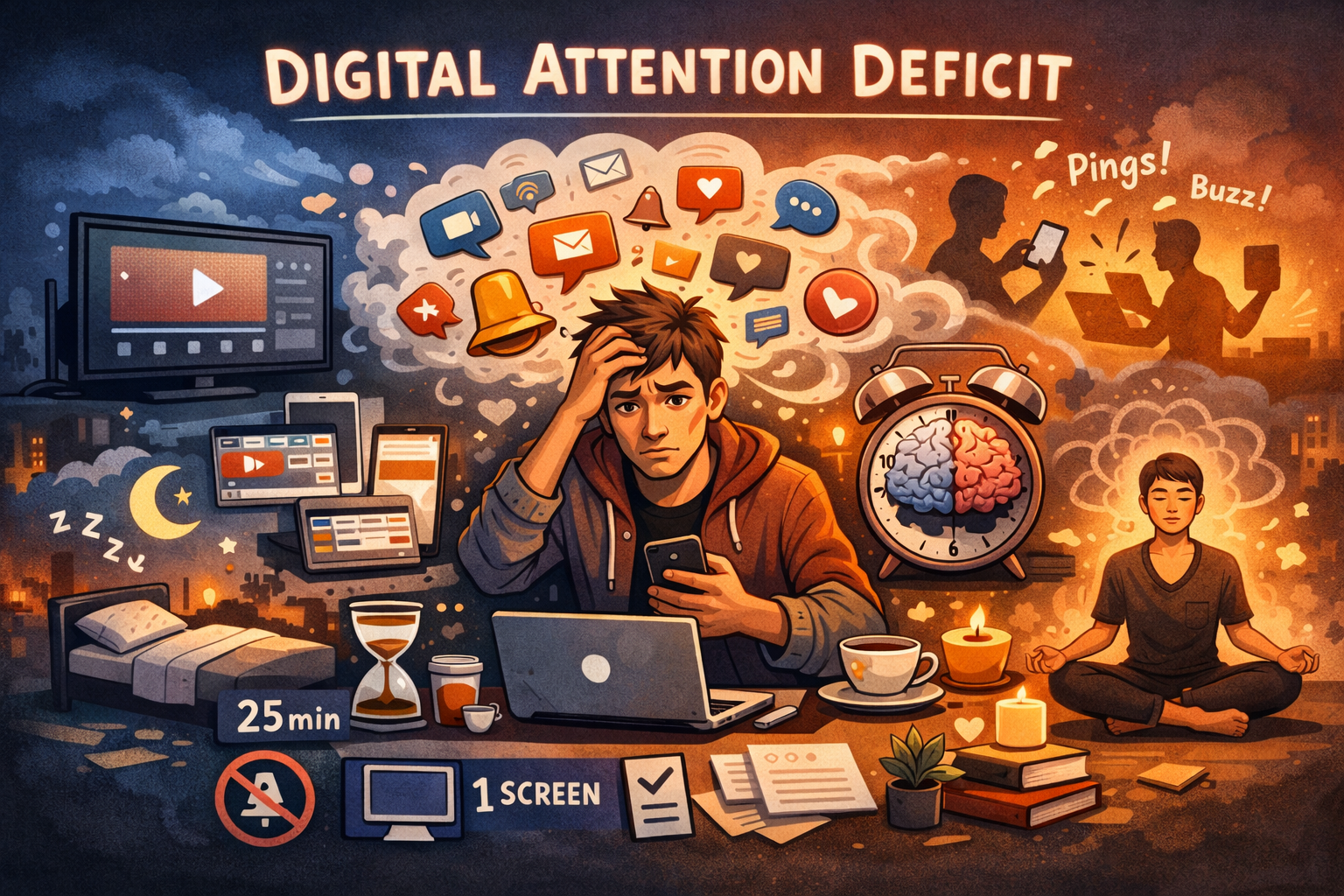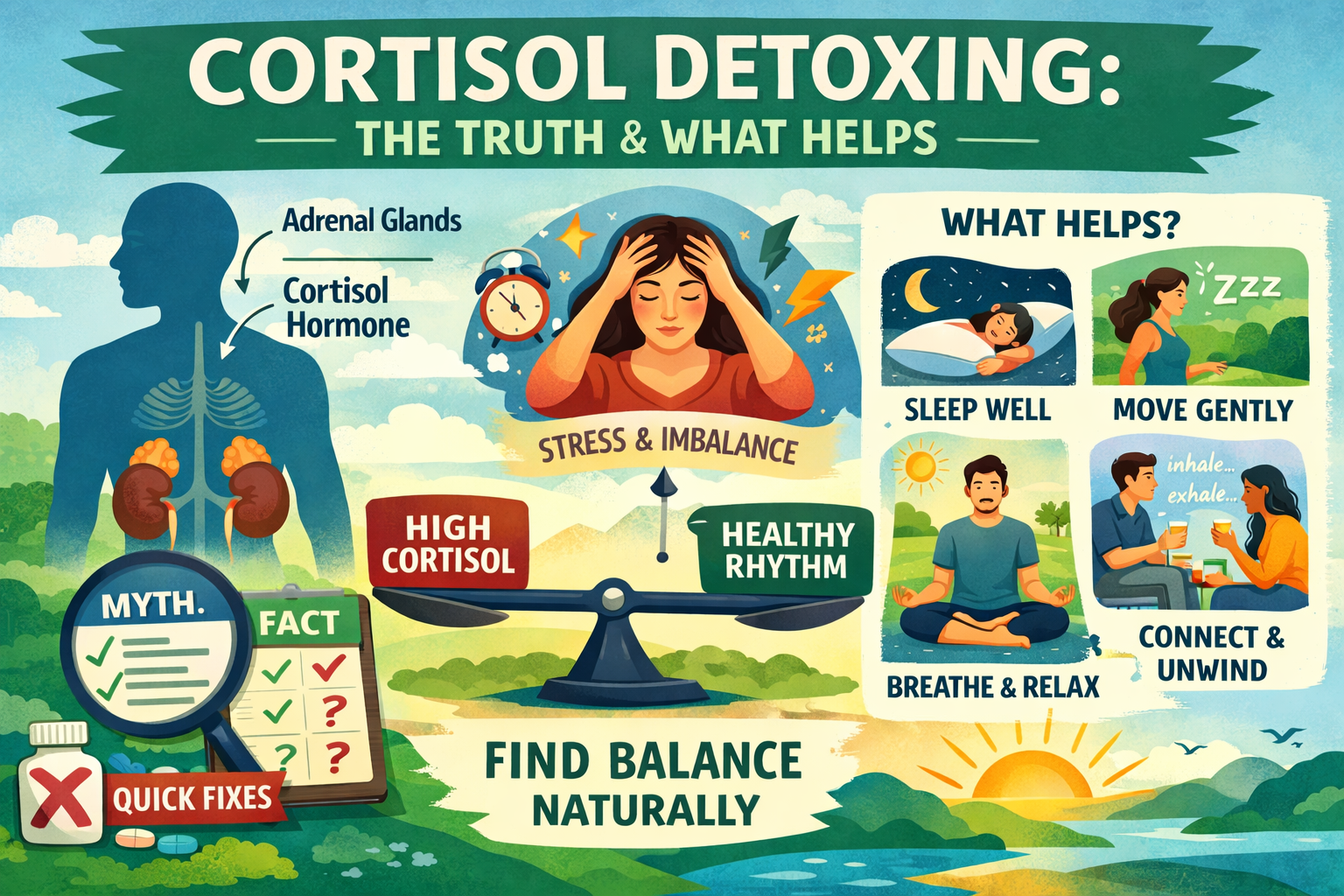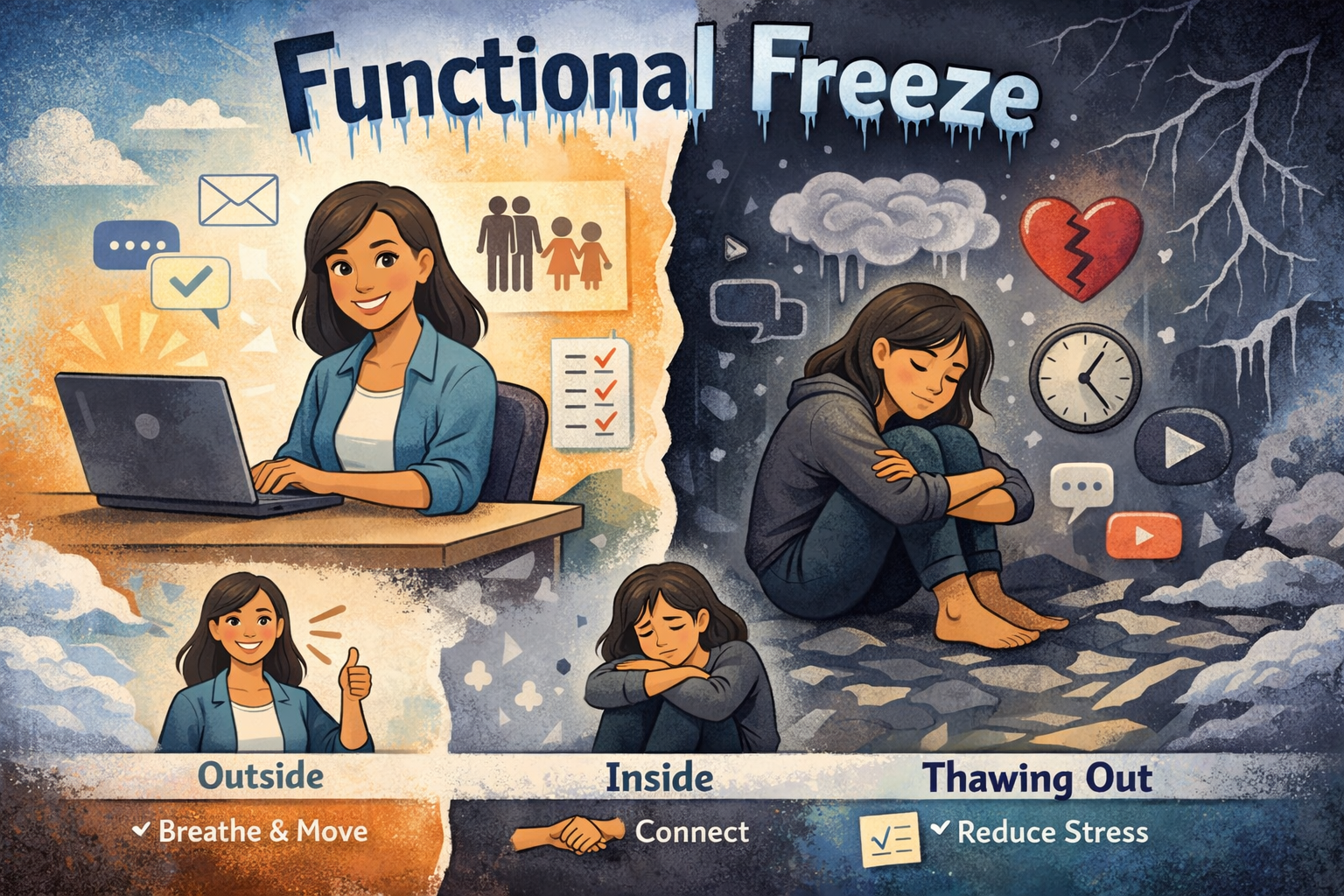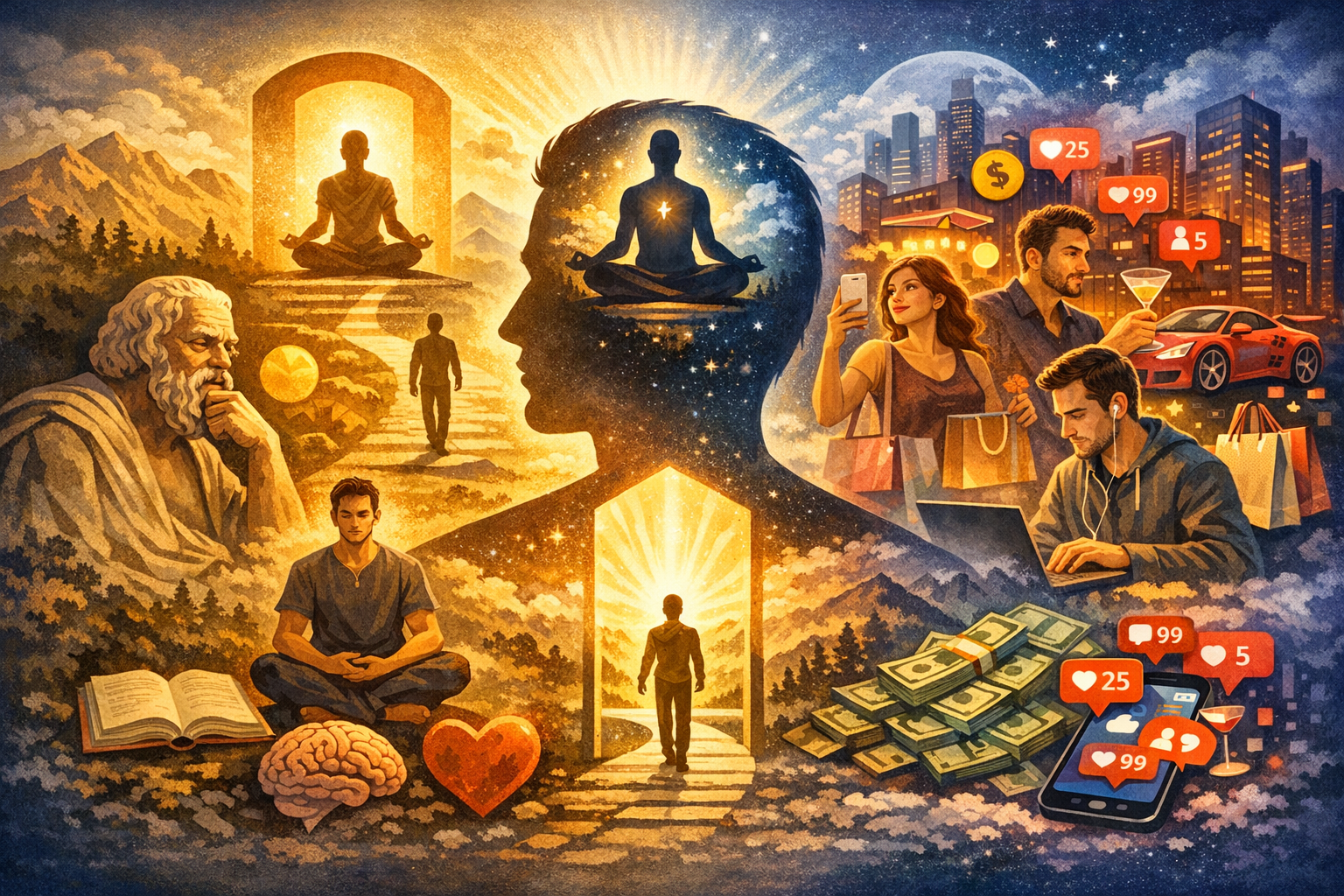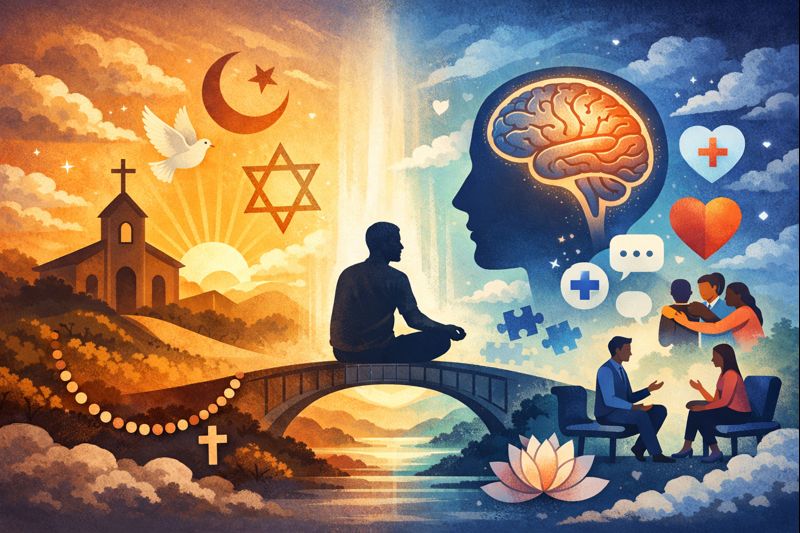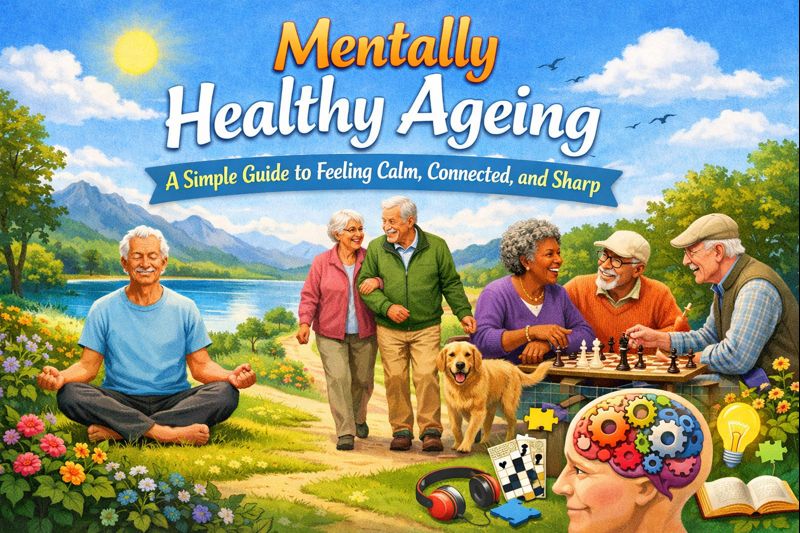The global mental health situation has become critical because of an increasing number of people
experiencing difficulties with their emotional and mental wellness. People now bear heavy mental
burdens of depression and anxiety besides stress which prevent them from managing their daily
routines. The mental health crisis has become more apparent because more and more people are now
discussing their issues with others as well as mental health professionals.
Multiple factors have led to the growing number of mental health issues. The combination of fast-paced
living with demanding responsibilities, digital connectivity, social expectations as well as economic
uncertainties creates this crisis like situation. The COVID-19 pandemic brought extraordinary social
disconnection and isolation which worsened conditions for large number of people. Under the
circumstances, can AI therapists effectively function as substitutes for human therapists? We examine
the rise of AI therapists amid mental health revolution. Also, the potential, challenges and ethical
concerns related to this issue.
The Rise of AI Therapists
AI therapists are gaining popularity because users find them both accessible and affordable. The AI-powered
chatbots Woebot and Wysa use Cognitive Behavioral Therapy (CBT) to help users manage their
anxiety and depression. These digital tools operate continuously because they provide instant
assistance to people who need mental health support.
The study published recently ‘PLOS Mental Health’, a global and multidisciplinary journal that brings
together research relevant to improving mental health and well-being around the world shows that
AI tools perform better than human therapists in certain situations.
Research participants gave ChatGPT higher marks for both empathy and cultural understanding during
simulated couples therapy. The results indicate AI holds a potential for delivering significant support to
users.
The forecast indicates that AI-based personalized therapists will gain widespread usage during the
next 15 years. Such systems could evaluate tone alongside mood and behaviour to deliver
individualized mental health care to patients.
Advantages of AI Therapists
AI therapists offer several benefits:
1. Accessibility: Therapy search challenges along with financial barriers keep numerous people from
finding a therapist. AI tools extend mental health services to people who have no access to them.
2. Cost Efficiency: AI-based mental health treatment costs significantly less than traditional
therapeutic sessions. The affordable pricing of mental health care through AI allows all individuals to
seek support.
3. Data-Driven Insights: AI processes large amounts of data through its fast data processing
capabilities to generate insights. The system uses data processing to identify patterns about
treatments faster than humans can through its analysis.
Challenges and Limitations
The various benefits of AI therapists do not eliminate their natural limitations which exist:
1. Lack of Empathy: Through their professional work therapists develop emotional connections with
their clients. The professionals use their ability to detect weak emotional links to offer comfort that AI
systems cannot match.
2. Handling Complex Cases: Clients who receive PTSD and trauma treatment require deep
emotional support to achieve proper care. AI systems do not possess that level of capability to deliver
adequate mental health support for severe psychological conditions.
3. Ethical Concerns: AI -based therapy creates privacy protection and system security issues for
users. AI systems face risks of emotional data leakage, misuse or hacking because they store
sensitive information from users.
India currently experiences an intense mental health crisis. The World Health Organization states that
150 million Indians need mental health care yet the country has only 5,000 trained psychiatrists. The
scarcity of professionals creates substantial barriers that prevent many people from obtaining
necessary mental health services.
Young people from Generation Z face the highest impact from mental health disorders among all
Indian youth groups. Students experience elevated stress from academic demands and their excessive
screen usage along with their uncertainty about future employment prospects. Gen Z members spend
more than 7 hours daily on the screen creating psychological distress.
AI therapists demonstrate the potential to bridge the treatment since the therapists provide easy
access for wide section of society. They establish trust and cultural understanding more easily.
Digital Addiction and Its Impact
Digital addiction is now emerging as a serious issue across society, more particularly for the
younger generation. This addiction creates problems for people’s emotional and mental health. Young
people have started experiencing anxiety and self-esteem issues more often because of their
increasing usage of social media such as Facebook, Instagram and TikTok. Research studies have
established that excess exposure to digital screens creates sleep disturbances, anxiety, besides
affecting their life-style by way of decreased time for physical exercise.
For sound mental health, AI therapists can offer a possible solution to assist people in managing
their screen time (to avoid digital addiction) through proper time management.
Ethical Concerns
Whever we use AI, some very important ethical questions do arise:
Privacy Risks: It’s utmost crucial to ensure effective security measure for the AI tools so as to secure
and protect data from unauthorized access and against hacking.
Accuracy Issues: An incorrect AI therapist assessment, diagnosis or advice can lead to harm instead
of healing of client.
Before AI therapists gain widespread acceptance, these concerns need critical examination and
resolution.
AI Therapists: Will They Replace Human Therapists?
The main question on everyone's mind is whether AI will, in near future, replace human therapists.
The answer is likely no — at least not completely. AI technology shows promise for supporting people
dealing with mild and moderate stress and anxiety but human therapists maintain their advantage in
providing deep emotional support and connections.
AI tools should function as assistants to human therapists rather than taking their place. The routine
check-in from an AI therapist allows counsellors and therapists to focus on complex emotional issues.
Conclusion
AI therapists have the potential to revolutionize mental health care by making it more accessible and
affordable. Traditional therapy lacks availability in many rural and remote areas and costs very high for
many needy people but AI tools exist to provide alternative support. AI therapists cannot fully replace
human therapists since they do not possess emotional understanding and empathy.
The future requires human-machine collaboration which uses AI tools to boost human professional
abilities without seeking to eliminate them completely. Future progress demands both ethical solutions
and protection of the essential human relationships that exist in mental healthcare.
AI therapists present a promising advancement in mental health care but their function should focus on
support instead of substitution.
Are you looking for inner peace, deep relaxation or holistic solutions for mental health? Visit http://themindtherapy.in - your space for online counselling/therapy, free mental health tests, meditation, sound therapy etc.
Mind Therapy is India's trusted platform for mental health, mindfulness, and holistic healing. Explore expert-led programs, guided meditation, sound therapy and counselling at http://themindtherapy.in


